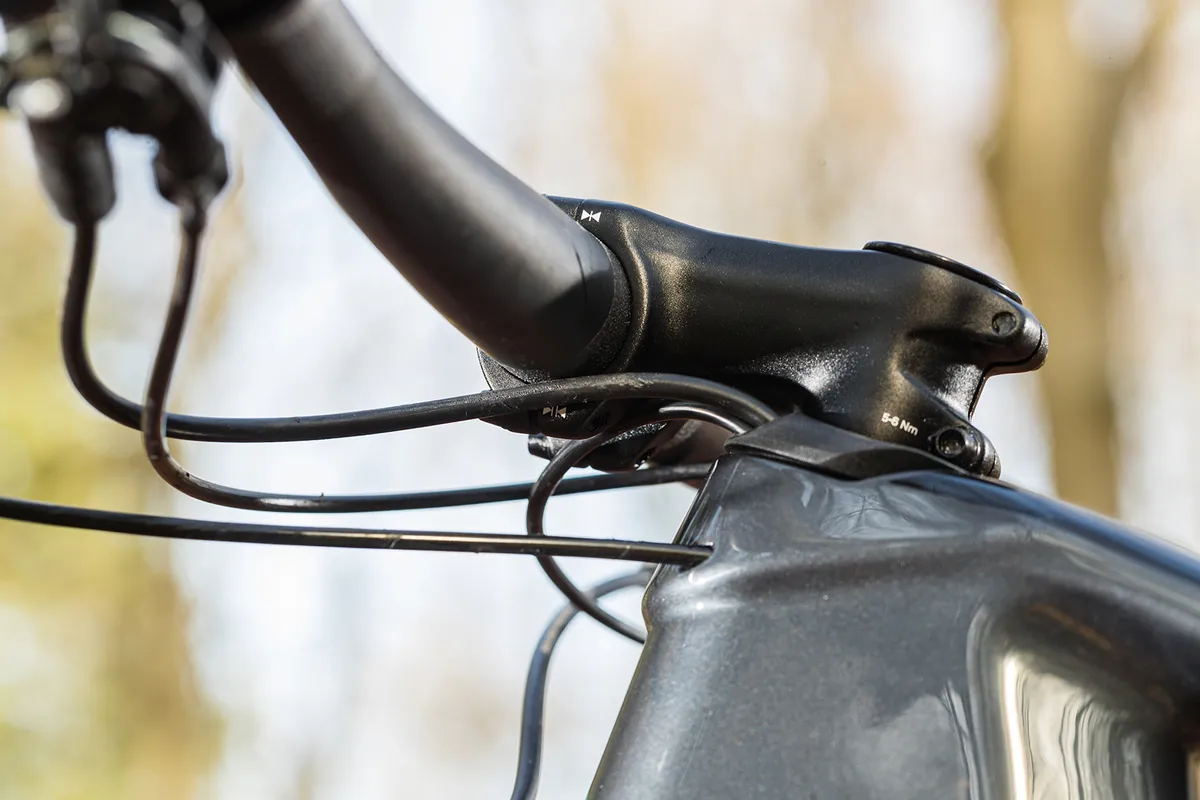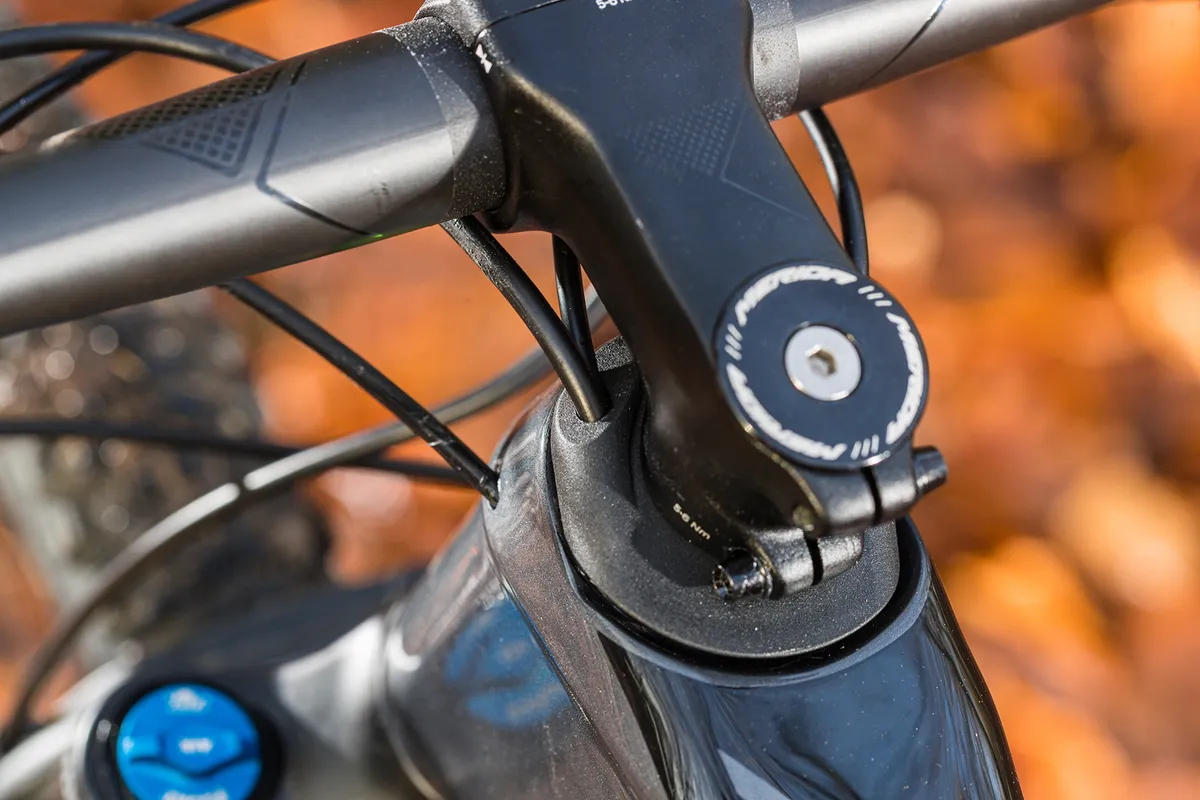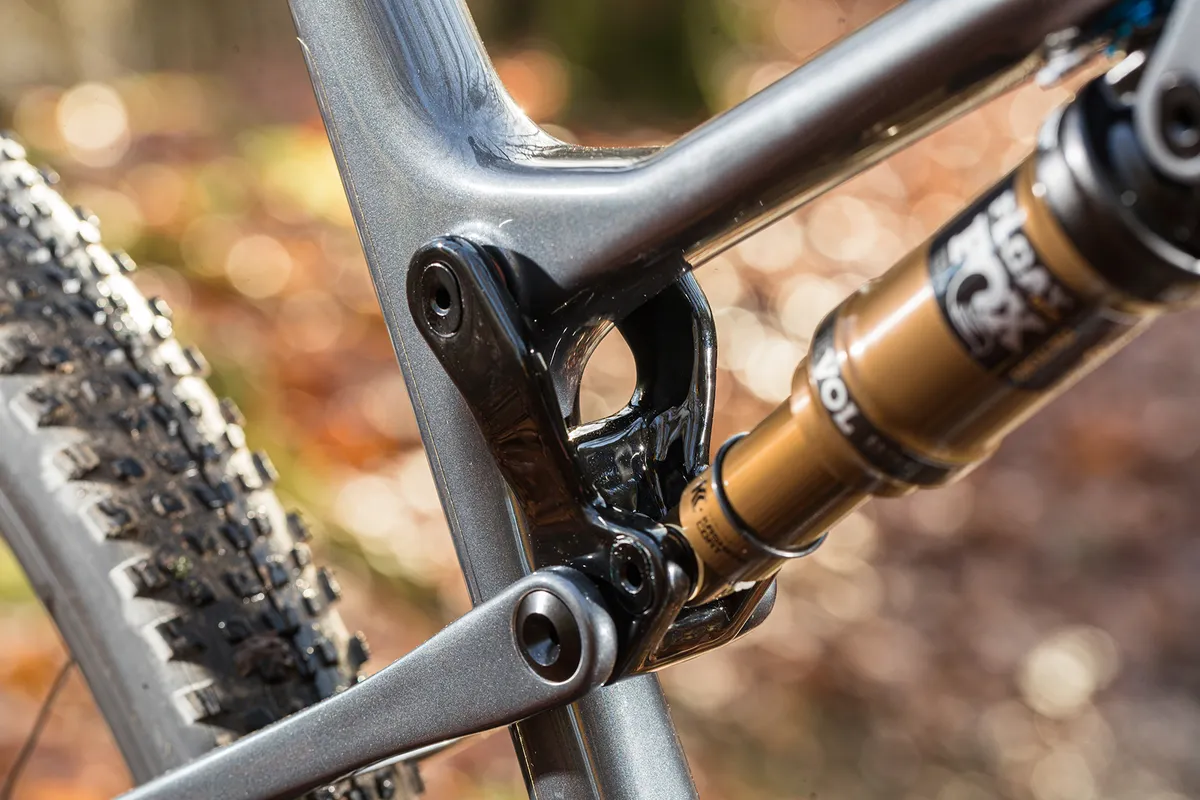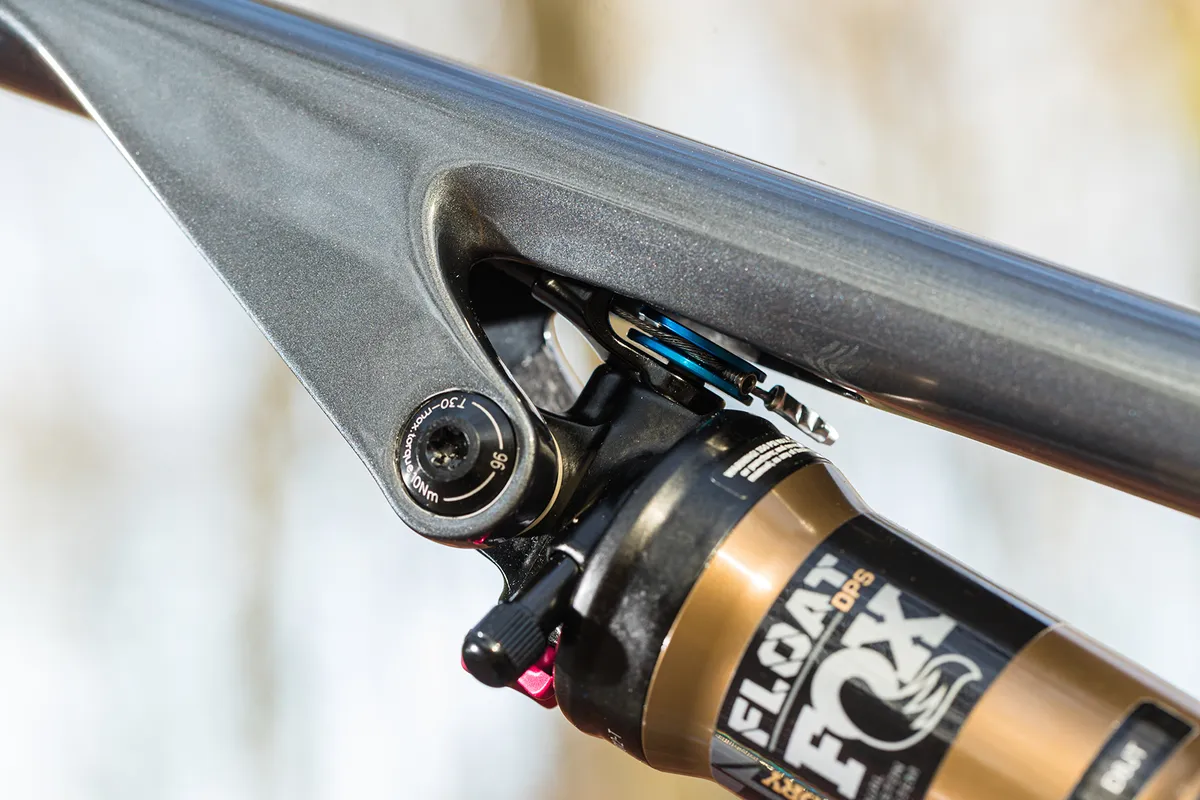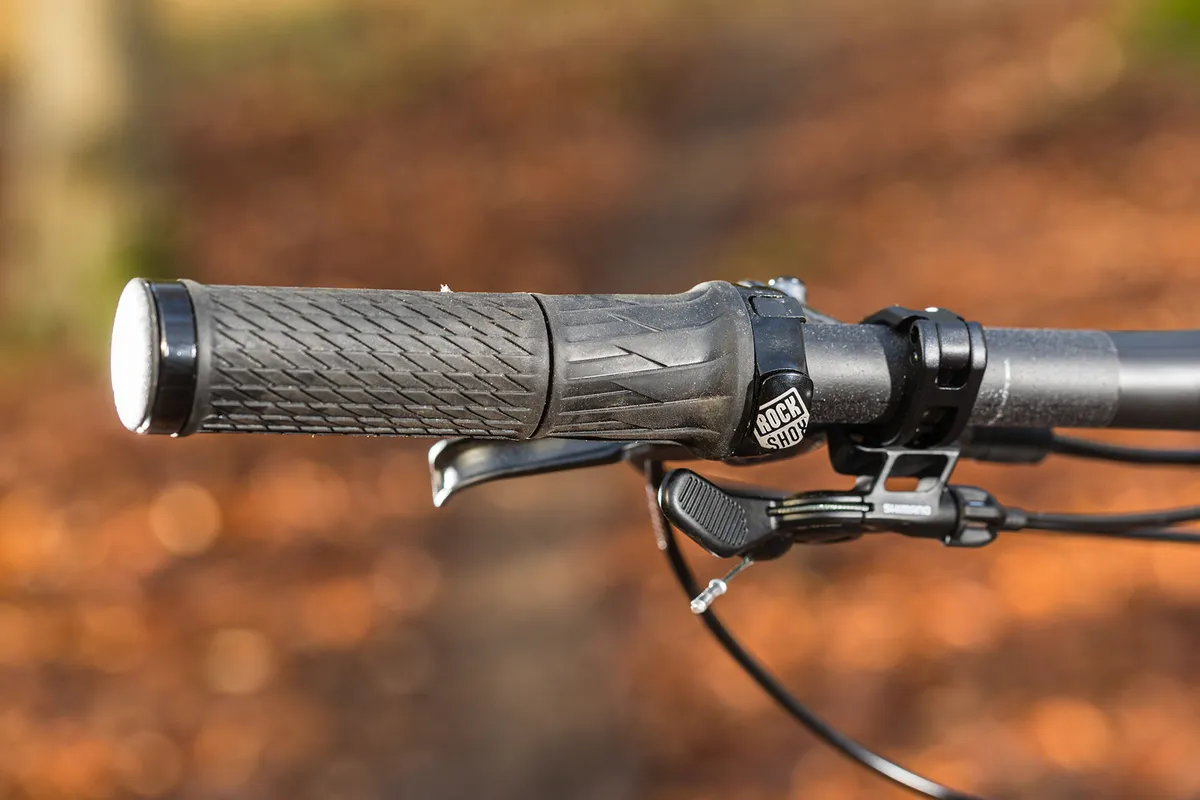Merida is one of the largest bike manufacturers on the planet, but in the UK it hasn't always been the most noticed. However, in recent times its line-up has become more impressive.
With the Ninety-Six, Merida shows it's not afraid to stick its neck on the line and build what is, in the cross-country world at least, a fairly radical bike.
Merida Ninety-Six RC 9000 frame and suspension details
As with most cross-country race bikes, the Ninety-Six RC provides 100mm of travel for both front and rear wheels, connected by a carbon frame.
Continuing the trends that have been seen across the board, the rear chainstay (or seatstay) pivot has been eschewed in favour of stays that have enough flexibility built in to account for the flex needed as the suspension moves through its travel. This saves weight and reduces areas requiring maintenance.
The main pivot sits just above the chainring, and incorporates a small chainguide for added security. The shock is driven by a carbon rocker-link, which swings from the top- and seat-tube junction.
Most of the pivot bolts are accessed from the non-driveside, and require a T30 Torx bolt – these thread into fixed points on the other side of the frame, so you don’t need a second tool to prevent slipping bolts. A regular hex-headed bolt would be preferred for any on-trail fixes, should the worst happen.
There are no wild claims made about the carbon used in the frame, however nano-particles are said to be incorporated into the resin, adding a claimed 40 per cent impact resistance. Meanwhile, internal bladders smooth the inside surface during the frame’s construction, reducing weight and potential stress points.
The frame has space for two bottle cages, as well as a pair of bosses just behind the head tube for a spares storage system. The head tube and headset are built as entry points for the cable runs, giving a very smooth finish to the frame.
Merida Ninety-Six RC 9000 geometry
A number of manufacturers are moving towards more trail-friendly geometry with their XC bikes, and Merida is certainly heading in the same direction. While it’s not quite as radical as some, such as the NS Synonym or Specialized Epic, head angles and reaches are slacker than previously.
All other angles are fairly standard for an XC bike, though the stack is fairly low at 595mm, and while reach figures grow by 60mm across the sizes, the chainstay lengths remain constant at 435mm.
Key figures for a size large are the 68.5-degree head angle and 76-degree seat angle, as well as a 473mm reach and 1,169mm wheelbase.
| | S | M | L | XL |
|---|---|---|---|---|
| Seat angle (degrees) | 76.5 | 76.5 | 76 | 76 |
| Head angle (degrees) | 68.5 | 68.5 | 68.5 | 68.5 |
| Chainstay (cm) | 43.5 | 43.5 | 43.5 | 43.5 |
| Seat tube (cm) | 40 | 44 | 47 | 50 |
| Top tube (cm) | 57.6 | 59.6 | 61.9 | 64.3 |
| Bottom bracket drop (cm) | 4.5 | 4.5 | 4.5 | 4.5 |
| Wheelbase (mm) | 1,126 | 1,146 | 1,169 | 1,193 |
| Standover (cm) | 73 | 73.1 | 73.6 | 73.8 |
| Stack (cm) | 58.5 | 58.5 | 59.5 | 60.4 |
| Reach (cm) | 43.3 | 45.3 | 47.3 | 49.3 |
Merida Ninety-Six RC 9000 specifications
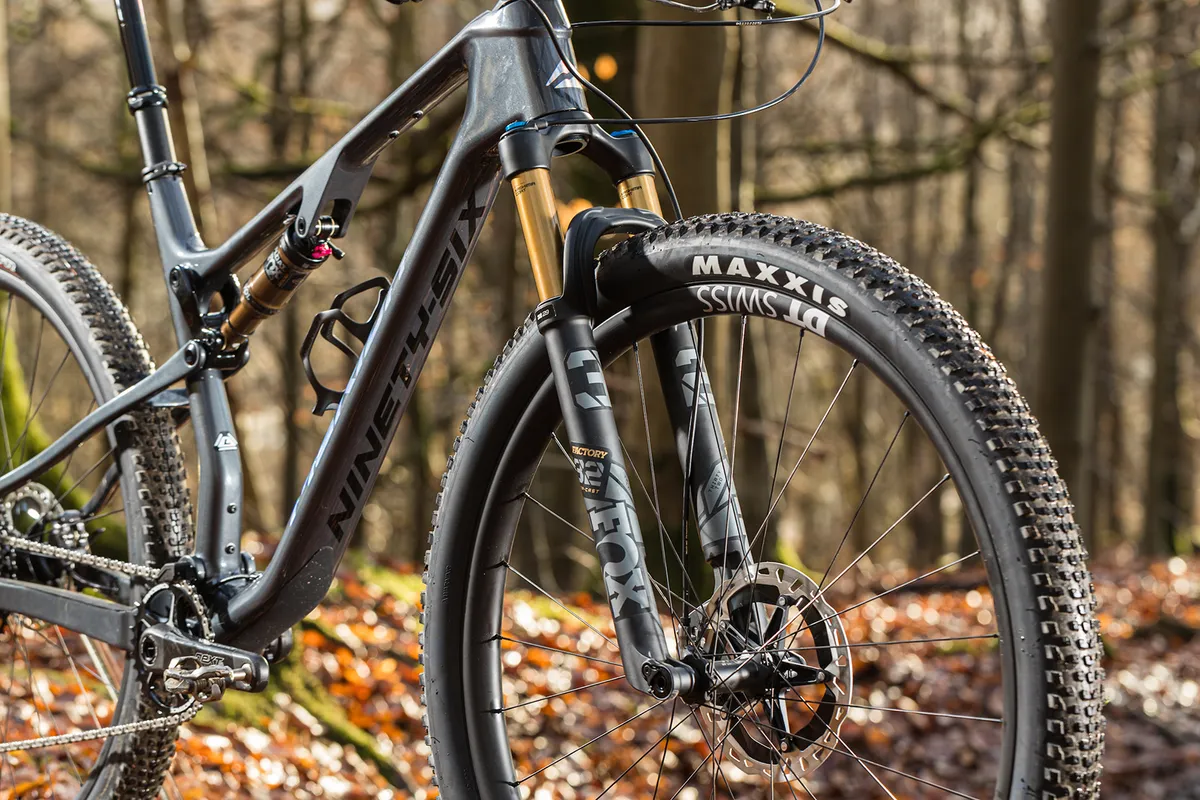
This is the top-level Ninety-Six, so, as you’d expect, the specification is top-end.
Fox supplies the suspension, with a Factory-level 32 Step-Cast fork at the front and a Factory Float shock at the rear. These both have a remote lockout, controlled via a RockShox on-bar TwistLoc gripshift – twist to open, click the release button to close. It’s an effective system, but needs a reasonable amount of twist to alter the compression setting.
The drivetrain and brakes come from Shimano, in the shape of its XTR groupset, paired with a RaceFace Next SL chainset with a 34t ring.
It all rolls on a pair of DT Swiss XRC 1501 Spline carbon wheels, with the 30mm internal width giving plenty of volume to the Maxxis Rekon Race 29 x 2.25in tyres.
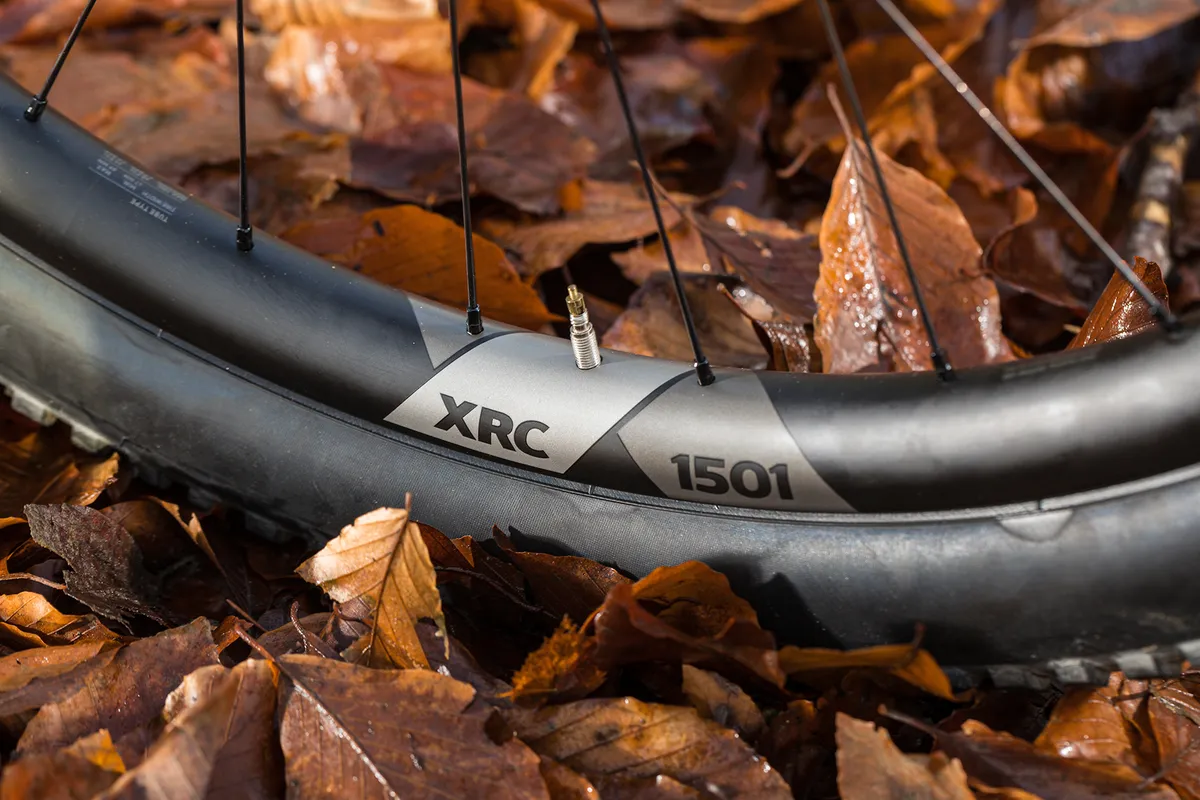
Finishing kit mainly comes courtesy of Merida, though you get a Fox Transfer dropper post too. Size small bikes get a 125mm dropper, it’s 150mm on the medium and large, while XL gets a 175mm post.
Merida Ninety-Six RC 9000 ride impressions
Bike setup was easy, with neither suspension unit causing any issues. I ran the rear shock with a touch over 20 per cent sag and the fork to my relatively firm tastes.
The bike came with a cut steerer and slammed stem – fit-wise, I would have liked to have raised the bars a touch. Bikes purchased at a shop will have a minimum 25mm of spacers.
Merida Ninety-Six RC 9000 climbing performance
Much like the Giant Anthem, the Ninety-Six is a bit of a rocket ship when pointed up a climb, so long as you stick to a smooth pedalling style, or use the very convenient TwistLoc lockout.
With the shock open and sat pedalling smoothly, the suspension is fairly active, though not wallowy. This allows the rear wheel to easily grab undulations, rocks and roots, helping you maintain speed up rough and loose climbs – at least until the skinny-treaded Rekon Race tyres get overwhelmed.
When it comes to loose or muddy conditions, the Rekon Race isn’t the best, however on smooth, hardpack surfaces it is a very fast tyre. I can’t complain about its performance, though, and if you’re spending this much cash on a fairly serious XC race bike, you’ll likely have more appropriate winter tyres available.
Over steps, the chain tension doesn’t seem to make the bike lurch up awkwardly as it crests the top, further enabling you to stay sat and pedalling in the most efficient manner.
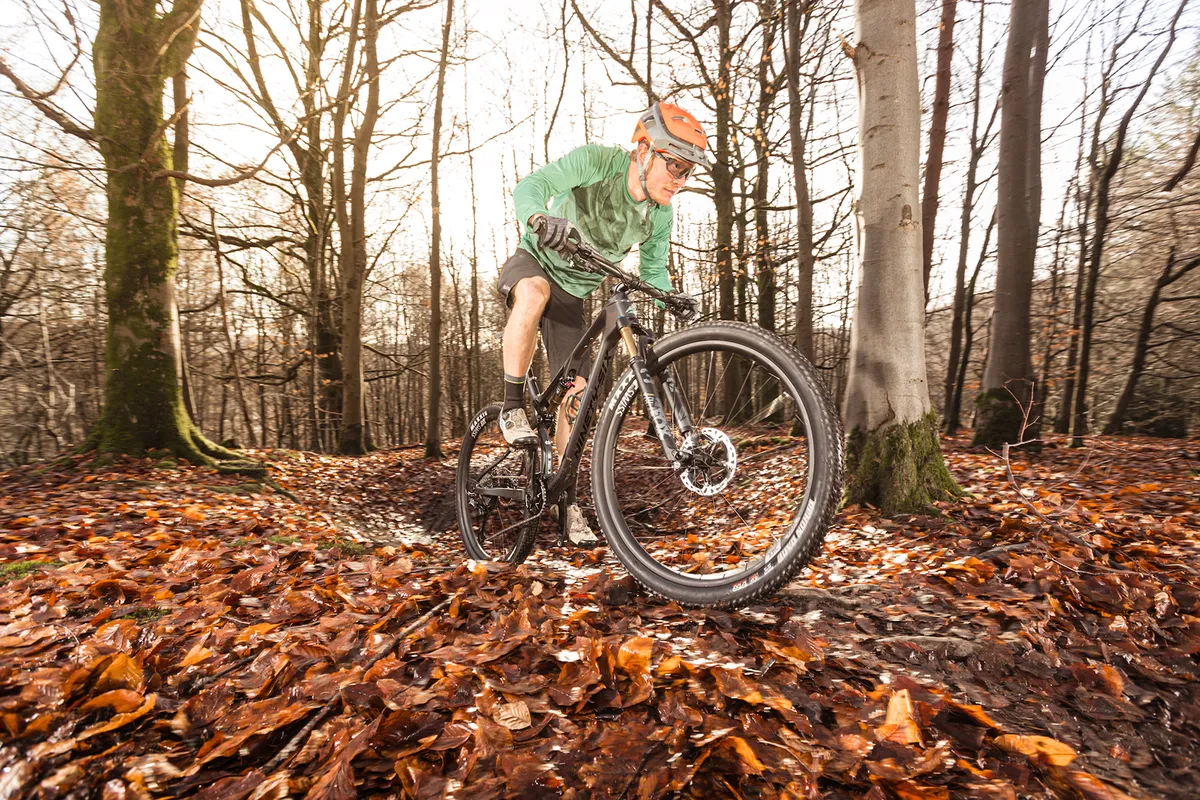
The lockout is handy, though, if you want to mash on the pedals a little more. Here, the bike seems to sink into its mid-stroke a little more than some other bikes, soaking up a little more of your efforts than might be ideal.
TwistLoc is very useful, too, so unless the surface is loose or rough, engaging the shock and fork’s lockout is very easy, negating the pedal bob.
Keep your legs spinning in circles, and on the flat or over smooth climbs there’s ample zip and speed on offer. The tyres roll fast and the DT Swiss hoops are light.
Merida Ninety-Six RC 9000 descending performance
With its fairly slammed front end, the bike I tested felt a little more nervous than the ample reach might suggest. On a shop-bought bike, there should be a little more steerer tube available to raise the front end a touch and I’d be tempted to do so for steeper XC courses.
This would give the bike a slightly more relaxed and confident demeanour down hills. This feeling is accentuated by the 740mm bar, which is narrow these days.
That said, the Ninety-Six still rips on fast, twisty tracks, such as the ones I spent a lot of time testing on.
Handling is pin sharp, and encourages you to push the Rekon Race towards its limits. With your weight pitched aggressively forward, you can put plenty of mass through the front contact patch to eke out as much grip as you dare. Directional changes are fast and accurate, so don’t let the longer reach figure fool you into thinking this is a bit of an XC barge.
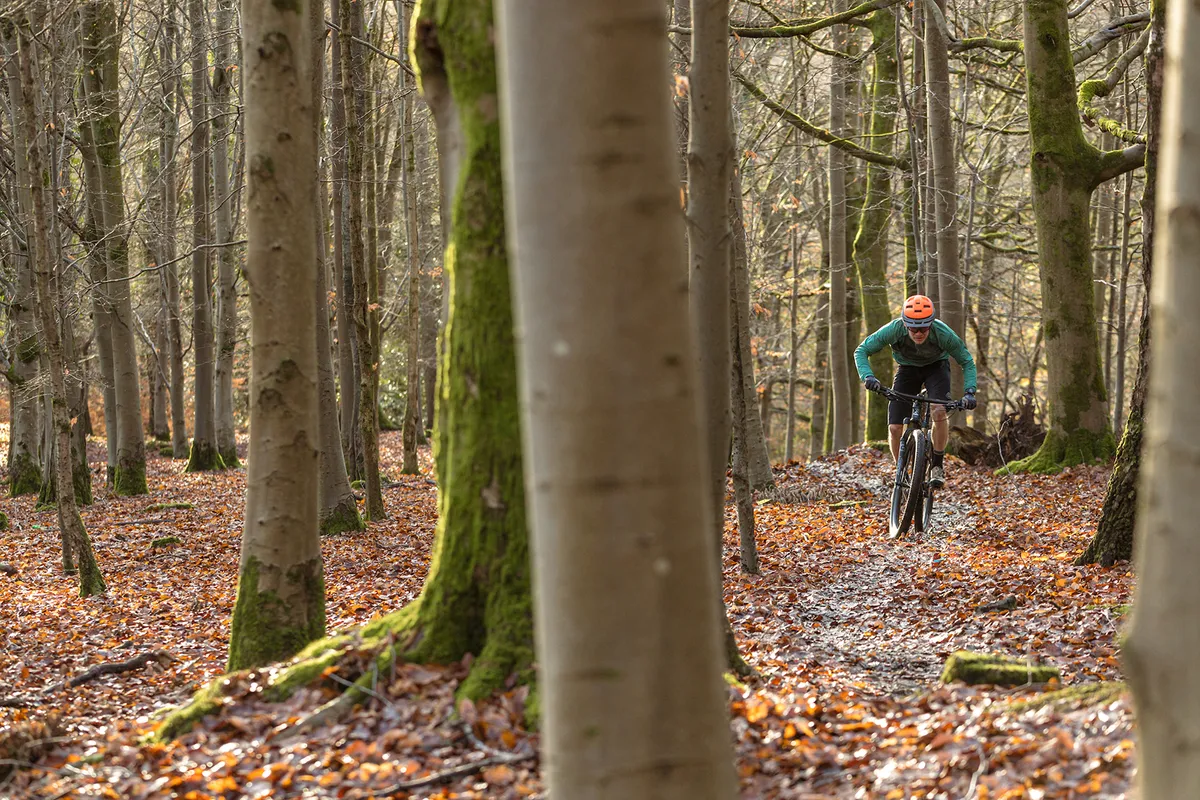
Fox’s 32 fork is smooth and light, and coped well with all I put it through in testing. However, when compared back-to-back against a RockShox SID SL, it feels a little more flexy in its chassis.
At the back, it’s a slight mixed bag with the rear suspension. On smoother tracks when pedalling, there’s plenty of kick available, reacting well to accelerations through the cranks, unless you really jab at the pedals, at which point it eats into its travel a little.
Over regular trail undulations, small-bump sensitivity is good, allowing the rear wheel to hook up well both through increases and decreases in speed.
Occasionally, though, especially on medium-sized compressions, I found the back end lurched deeper into its travel than I might have expected, suggesting that once it's out of its initial stroke, support and progression come in a little later into its travel.
You could run the shock a little harder to get more mid-stroke performance, at the expense of initial sensitivity and the ability to access all of its travel.
When I did push it through all of its travel, the Ninety-Six proved to be smooth, though, with no undue crashes or bangs.
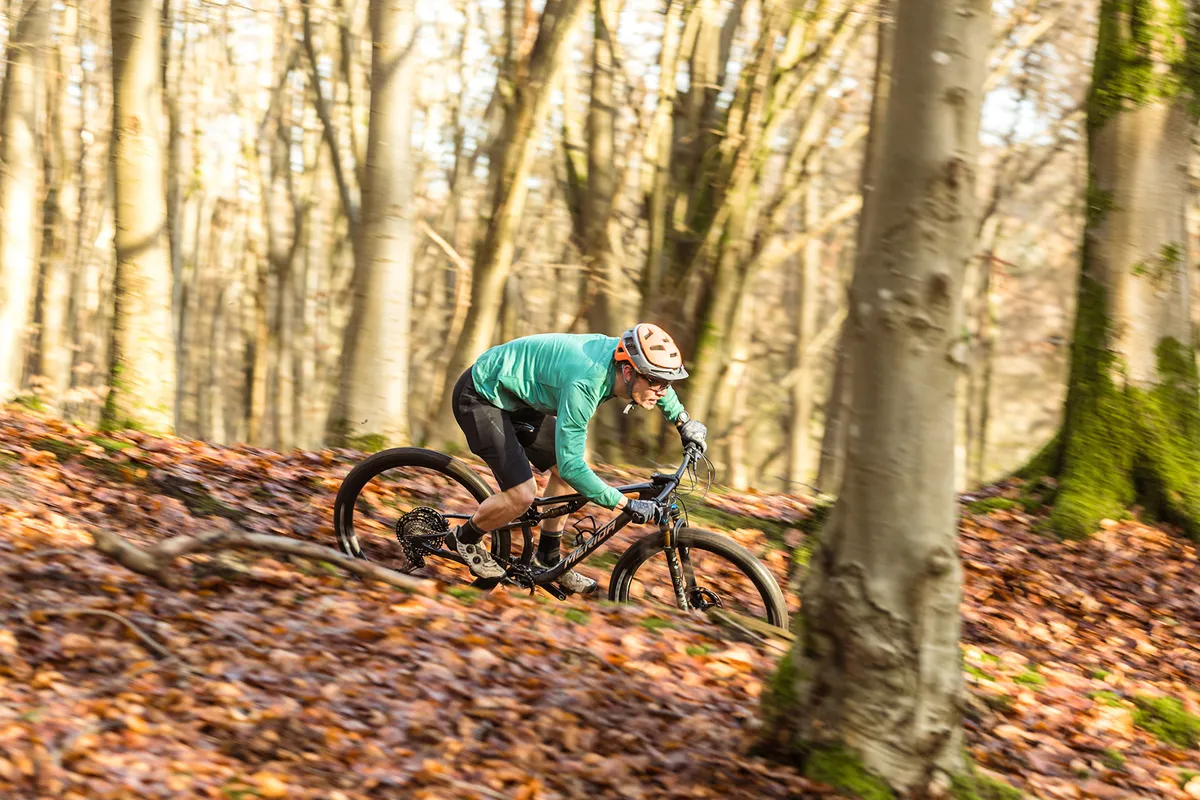
Kit-wise, I had little to complain about. Fox’s Transfer post is one of the best out there, and while it adds weight, I appreciated being able to drop the saddle when I did hit steeper sections of trail.
Shimano’s XTR drivetrain is, in my opinion, the best mechanical groupset out there and DT Swiss’s wheels have the good reputation they deserve. Other than wishing for a wider handlebar, Merida’s components performed their tasks perfectly.
Merida Ninety-Six RC 9000 bottom line
Merida has blended a little old-school XC snappiness with a hint of modern-day thinking on the Ninety-Six. The bike is reactive to both pedalling and steering inputs, giving it plenty of character through corners.
While it might not quite topple the Specialized Epic as my XC race bike of choice, it’s certainly edging onto the front row, especially if I could tune the suspension and cockpit more to my liking.
Product
| Brand | merida |
| Price | 8900.00 EUR,7300.00 GBP |
| Weight | 10.7000, KILOGRAM (L) - without pedals |
Features
| Fork | Fox Factory 32 StepCast, 100mm travel |
| br_stem | Merida Team CC, 70mm |
| br_chain | Shimano XTR |
| br_frame | Carbon fibre, 100/100mm travel |
| Tyres | Maxxis Rekon Race 29x2.25 EXO TR f/r |
| br_brakes | Shimano XTR, 180/160mm rotors |
| br_cranks | Race Face Next SL, 34t |
| br_saddle | Skratch M5 |
| br_wheels | DT Swiss XRC 1501 Spline |
| br_shifter | Shimano XTR |
| br_cassette | Shimano XTR, 10-51t |
| br_seatpost | Fox Transfer |
| br_gripsTape | Merida |
| br_handlebar | Merida Team CC, 740mm |
| br_rearShock | Fox Factory Float |
| br_bottomBracket | Race Face |
| br_availableSizes | S, M, L, XL |
| br_rearDerailleur | Shimano XTR |
